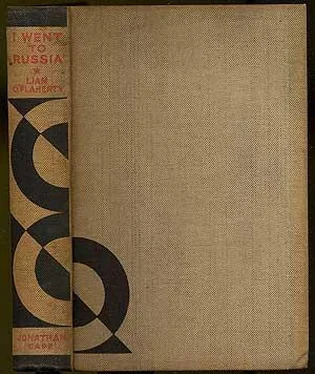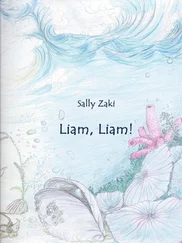But he was so kind that he made me feel uncomfortable. There is an art in kindness. There is a certain limit, which, overstepped, turns kindness into cruelty. This man was so affable, so enthusiastic and so obviously cheered by my arrival and my company that I understood he had very little in his own life or in his own nature to give him happiness. His pale, blue eyes, surrounded by a flabby, white face and his mouth, that was not beautiful, repelled me, because they inspired pity. He looked unhappy and at the same time greedy of happiness. He was obviously in surroundings that were uncongenial and yet he had not the courage to leave them. He was like those priests and monks that one encounters in religious societies, fellows who donned the cassock of celibacy on the impulse of a moment, or through some gross necessity, and have not the strength of character to leave, but go on being priests and monks and at the same time sinners beneath the unseemly folds of their smocks. Yet, just as those unwilling monks are more human than the genuine fanatics and are, in general, good fellows, so was this mate charming. I pitied him and liked him and despised him. I could see at once that he disapproved of Bolshevism and wished to show me that he dis-approved of it and wished to curry favour with me, because he thought I was a ‘bourgeois’ and an enemy of Bolshevism.
When the steward had brought a bottle of brandy and we had filled our glasses, I said:
‘Here’s to Soviet Russia.’
‘Here’s to fair women and fair weather,’ said the mate.
We drank.
‘Are you not a Bolshevik?’ I said.
He shrugged his shoulders and muttered something about being a working-man. Then he skinned an orange which he offered to me. He offered chocolates and cigarettes. In fact he offered me his whole cabin and if his wife were present, I feel sure that he would have offered her also, such was his eagerness to oblige and to immolate himself in a fanaticism of generosity.
‘Life is hard,’ he said. ‘I am now chief mate. I was once a captain. I once had wife with me on ship. Now I see wife, two days, maybe six days one month. Before, good house Archangel. Now, one room Leningrad. I have forty-four years. One time I make business, what you call ship chandler. Very good. I go Black Sea also. Very good. Oh! Very nice. Greece also with wife. Other women maybe. This ship ... I think maybe this ship different. Communist personnel. Maybe politics no good for sailor men. I think sailor men all the same all the world. They like women, drink, good weather. You think too?’
‘Sir,’ I said. ‘I never give voice to my thoughts.’
He looked at me suspiciously and changed his attitude. He became more serious and dignified. Then I liked him better. But I could see that he was of no use to me. After all, my business was to write a book about Bolsheviks, not about people with slave minds whom the Bolsheviks could not mould to their fanatical purpose of imposing the idea of proletarian equality on the whole of mankind. He noticed that I did not think much of him and ceased to drink. Presently he went out and returned with the steward. The steward brought me to my cabin, fetching also the remainder of my brandy. When he had installed me, he turned to leave, but I recalled him.
‘Sir,’ he cried in German, with the same force and the same servility that a corporal would use on being addressed by his company officer.
At the same time he bowed from the waist, with his heels together, so low and with such a straight back, that his body was perfectly horizontal from neck to rump. In appearance he was a Jew. His face was that of a serf. I was convinced by the look of him that he had often been whipped. He offended me.
‘Drink’ I said to this ruffian.
He looked behind him furtively, bowed several times and cried:
‘Danke. Danke sehr. Danke’
I filled him a tumbler with brandy. ‘ Prosit! ’ he cried and tossed it off at incredible speed. I straightway filled him another tumbler. He protested feebly, but having taken the fellow’s measure and wishing to amuse myself by making him drunk, I seized him by the poll and practically forced the contents of the tumbler down his throat. He writhed and shook his head like a dog that has been doused. His long nose became very red and daubs of colour stood out on his sallow face. The alcohol had gone to his head, changing his fawning servility, as is invariably the case, into a false arrogance. He treated himself to a chair, seized an orange, skinned it, began to eat it and lit a cigarette, talking excitedly in German. I understood nothing of what he said, for German is a language I have never felt impelled to acquire. But language, whereas it may be necessary for the exchange of ideas, commodities and services, is rarely of use for the study of human character. For this, conduct, voice and gestures are much more enlightening.
A traveller, when studying the manners and character of a strange people, should begin with their servants. Hotel porters, waiters, chambermaids, policemen, cab-drivers and petty officials of all sorts are much more likely to give a correct estimate of the people’s culture and civilisation than any amount of reading, or intercourse with chance acquaintances, or official convoys through museums, theatres and public displays. Servants always develop a dual personality, their individual character, which is used in their intercourse with their wives, their friends and their families, and their social character, which is forced upon them by their duties. It is this social character which is of interest to the traveller. When the servants of a community are corrupt, indolent, inefficient, unstable and without polite dignity, it is inevitable that the community at large is guilty of these vices to a major degree. On the other hand, when such servants are in all manner pleasing to the traveller, it is inevitable that the community which employs them has reached a high degree of civilisation and culture. To my mind, the English are nearest to perfection in this respect, although they are far from perfect in other respects. If I were to judge by the steward, the Russians wallowed at the opposite extreme. But such judgment would be ridiculous. He was proof of nothing, except of the vanity of human idealism. For he remained a slave, in spite of thirteen years of proletarian equality. The Bolsheviks had willed him to be a free man, as free in spirit as the great Lenin. Yet he remained a slave. They had given him the Marxian theory of value, the sickle and hammer of the Soviets, a Red army and navy to protect him, the title of Comrade, the Five Year Plan, all their schemes for the liquidation of everything from God to drunkenness, yet he remained a slave. He even grovelled before a citizen of the bourgeois British Empire.
‘Yes!’ I thought. ‘One cannot turn a slave into a free man by an edict. The free man is born not made.’
I suddenly shouted at him:
‘For God’s sake, leave my sight. You offend me.’
He did not understand what I said. He gibbered something and ran out of my cabin. In a short while he returned with a companion, a tall fellow who wore the uniform of an officer. The newcomer astonished me, for he was not only powdered but painted slightly. He belonged to a type that is never seen on one of our merchant ships, a sort of heavy and effeminate dandy, with the languorous expression of a film actor who plays amorous parts. His hair was false and he wore patent leather shoes and he spoke French.
‘I am the fifth mate,’ said this worthy, who had obviously read the novels of Turgenev and wished to become a European gentleman. ‘You require something, which the steward was unable to decipher.’
‘No more’ said I, ‘than I am able to decipher the reason for your exalted rank. Surely three mates are enough for a ship of three thousand tons. But I am glad to see that a Bolshevik ship carries more officers than a British ship. Making everybody an officer is one way of establishing social equality. Have a drink.’
Читать дальше












